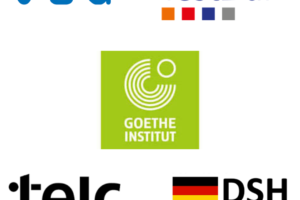What level of German do I need to learn for higher education, employment, research and spouse visa?
German, like most European languages, is taught using the CEFR framework(Common European Framework of Reference for Languages) which means that it is taught as a series of 6 levels – A1, A2, B1, B2, C1 and C2. A1 & A2 are the beginner levels where your foundation is built. B1 & B2 are intermediate levels that deal with the core grammatical concepts of the language to help you converse confidently with native speakers, with minor correction required w.r.t to grammar, vocabulary or the “local flavour.” C1 is the advanced level after which you become proficient and are able to imitate the style, cadence and rhythm of native German. While you have mastery of the German language, you are also equipped to use idioms, native expressions and cultural references to infuse flavour. C2 demonstrates a near-native command of the language and includes a good understanding of art, literature and poetry along with Spoken German. You will need to be able to demonstrate your skills at a particular level to avail opportunities in education, employment, research or medicare.
| Opportunity | Min. Level Required |
| Higher Education(Masters) in Germany | B1 We recommend that you learn up to the B2 level as you will still need to be fluent to get around a German-speaking country and interact with the natives, in addition, to independently shopping, commuting, banking and looking for a part-time job to support yourself. |
| Employment in Germany – Job seeker visa | B2 |
| Dependent visa for spouses | A2 |
| Au pair | A1 We recommend that you learn at least up to the A2 level to be able to communicate a little more effectively. |



